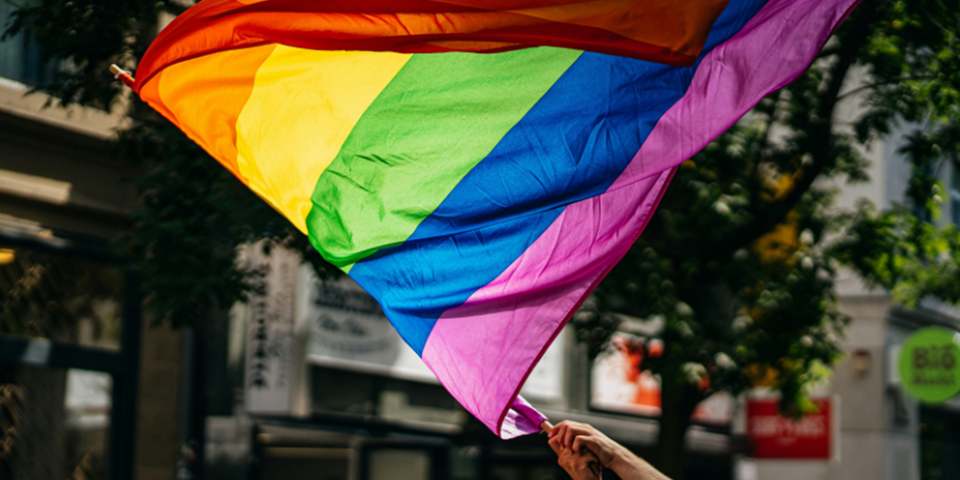News
The invisible web of solidarity that underpins queerness in academia

To be queer in academia is to join an invisible web of human connectedness. As a queer academic, sometimes you need to tell somebody who will get it without you needing to explain.
As a queer science academic, sometimes you need a queer arts academic to give you words for things you know but can’t describe.
This human web, operating outside of organisational units and job descriptions, has brought enormous joy, solidarity, comfort, and a fair few terrible but compelling reality tv recommendations to my work days.
For many of us, this human web started with, but doesn’t finish with, the queer community. The othered find the othered. These intersections with other minority groups on campus are their own joy and also a valued resource because the challenge of being queer in academia is often at the intersections.
I know that in my classes there are queer students who are not accepted by their families, whose mental health is impacted by social media trolling and newspaper headlines, who do not have a mental picture of what healthy queer adulthood might look like.
These students need me to tell them where the nearest all gender bathroom is and to mention my wife in passing during a lecture, to signal that that they are safe and valued. In the same class, there are students who hold genuine, deeply held beliefs that are in conflict with who I am.
My signalling and disclosure is both a bridge to and a potential barrier from my students. The complexities and sensitivities of striking this balance, making space for all of my students, is a cognitive and emotional load. Some days leave me vulnerable and exposed.
My time as a queer academic has been defined by parallel, wobbly arcs of change in both my personal and professional lives. When I started university, my partner and I weren’t technically barred from getting married in Australia. That changed by the time I started my PhD (“a union of a man and a woman”).
Thirteen years and 22 failed bills later Australia voted to allow us to marry. That year is still hard to think about. I stopped reading newspapers, I oscillated between advocating and protecting myself.
I tried to support friends 15 years older than me who were plunged back into an era of shame and memories of brutality that they thought they had moved on from. There was no elation for me when the Yes vote was announced. 38% of people voted no.
The elation came when my wife and I were married, 3 months after the law changed and 22 years after we fell in love. The number for my Indigenous friends and colleagues is 66% and there has been no progress to soften the individual and community trauma it caused.
At university, rainbow flags have changed to progress flags. Ally stickers, once restricted to the arts and drama buildings, are now commonplace in science and engineering.
Conversations at conference dinners have morphed – it was not that long ago that I went home and cried, not from the conversation but because I did not speak up and stop it (my older self is more forgiving – it is still a hard thing for a PhD student to speak up to a Professor on a table of laughing colluders).
I was surprised when the same sex marriage vote changed the ease with which I spoke openly at work. I had thought I was out, but maybe not as out as I could be. In recent years, for the first time in my career, the University and Senior Leadership team are publicly and proudly supportive of the LGBTIQA+ community.
On campus the stories of queerness are more common, more diverse and more nuanced than they have ever been. As a queer person today, you sometimes can’t keep up with the community. What joy to live in a time where inclusion expands so quickly that the vocabulary leaves you behind!
Today, I feel safe being authentically me at every level of the University. I am aware, and we all need to be aware, that not all members of our LGBTIQA+ community feel this way yet.
Further change is needed – if an obscenely privileged, blonde haired, blue eyed, private school educated woman is the face of inclusion then we have a way to go. Society is good at homogenising minorities - you can have a voice, but only one.
Society is good at constraining minorities – I don’t care if you’re gay as long as you don’t rub it in my face, shave your head, have children! The splendour of the queer community is its hard-won diversity and we have to keep fighting.
If I am honest, I am more cautious today than I was a year ago. The global mood has shifted again, adopted a more menacing tone. Should I adjust the wording of my University profile? We have been here before. My lived experience tells me things might get worse again before they get better.
I hold onto the belief that things are undoubtedly better. Not for everyone, everywhere, all the time, but better. Change is scary, because of all we have gained, but change is also the only way forwards.
- By Sarah Etherington, Associate Dean Learning & Teaching, School of Medical, Molecular & Forensic Sciences
News
The invisible web of solidarity that underpins queerness in academia
Posted on